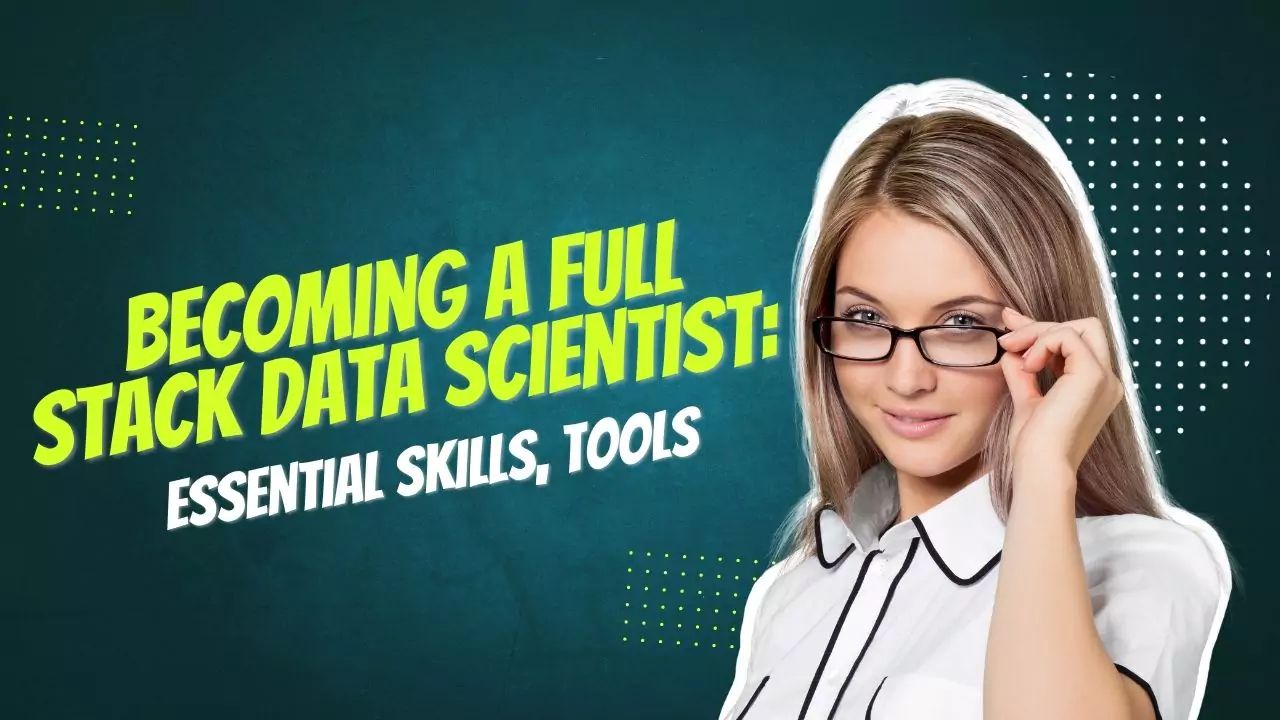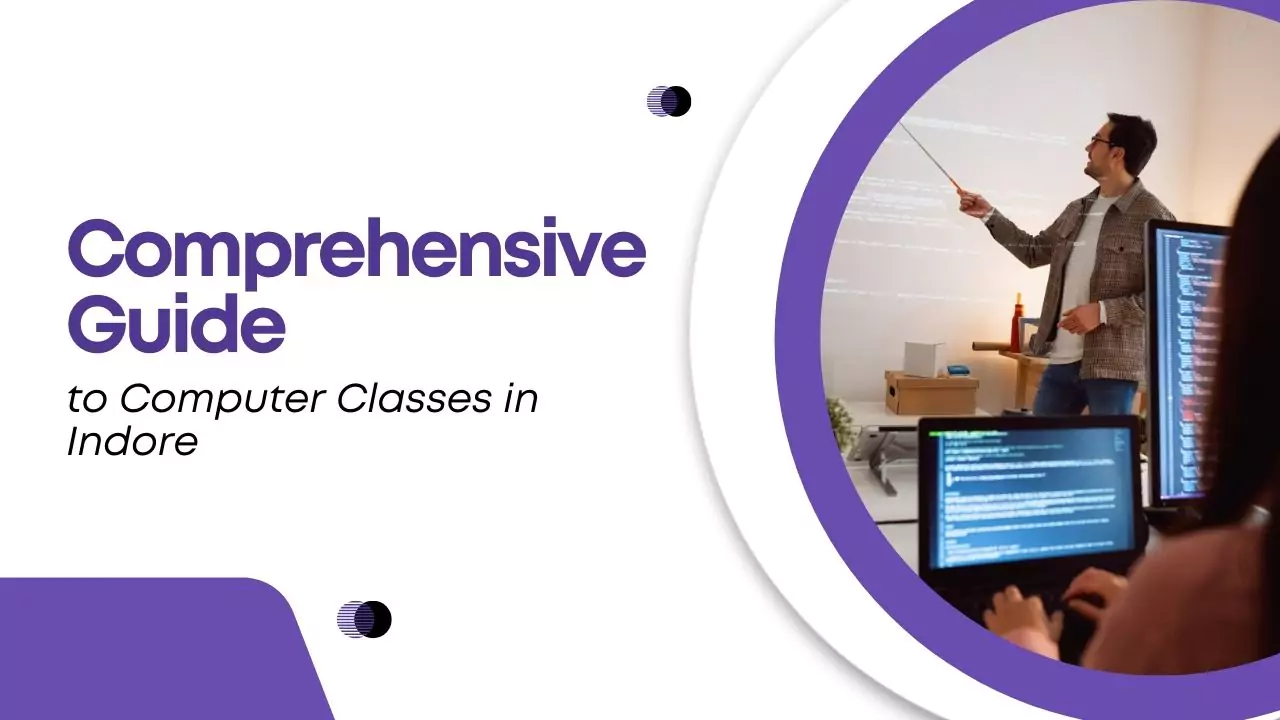In today’s data-driven world, companies are increasingly seeking professionals who can handle every step of the data science pipeline. Enter the full stack data scientist – a versatile individual who not only understands data analysis but also takes part in data acquisition, processing, modeling, and deployment. In this blog, we explore what it means to be a full stack data scientist, the skills required, tools used, and how you can become one.
Who is a Full Stack Data Scientist?
A full stack data scientist is proficient in managing the entire data science process from data collection and cleaning to building, deploying, and monitoring machine learning models. Unlike traditional data scientists who may focus solely on data analysis, full stack data scientists are skilled in end-to-end project handling and model deployment.

Essential Skills for Full Stack Data Scientists
To be a successful full stack data scientist, a diverse set of technical and soft skills is required. Here’s a breakdown:
Technical Skills:
- Programming Languages: Proficiency in languages like Python, R, and SQL is essential. Python is particularly valuable due to its extensive libraries for data analysis and machine learning.
- Data Processing Frameworks: Tools like Pandas, PySpark, and Dask are crucial for efficiently manipulating and aggregating large datasets.
- Machine Learning & AI: Full stack data scientists should be familiar with machine learning algorithms, such as decision trees, clustering, and neural networks, using libraries like Scikit-learn, TensorFlow, and PyTorch.
- Computer Science Fundamentals: Understanding data structures, algorithms, and version control is vital. Full stack data scientists often need to deploy models within larger applications, making computer science knowledge indispensable.
- Model Deployment: Creating and maintaining data pipelines, using APIs, and implementing cloud-based solutions on platforms like AWS, Google Cloud, or Azure are key skills.
Soft Skills:
- Business Acumen: Full stack data scientists must be able to identify business problems and translate data insights into actionable strategies.
- Communication: Explaining complex data insights to non-technical stakeholders is an essential part of the job.
- Project Management: Handling end-to-end projects requires strong organizational and time-management skills.
The Data Science Process for Full Stack Data Scientists
Being a full stack data scientist means managing every stage of the data science process, which includes:
Data Acquisition and Cleaning:
The process begins with gathering data from diverse sources, followed by cleaning and transforming it into a usable format. Knowledge of databases such as PostgreSQL and tools like BigQuery are beneficial here.
Exploratory Data Analysis (EDA):
EDA is crucial for identifying patterns, relationships, and anomalies in the data. Tools such as Python, Jupyter Notebooks, and visualization libraries like Matplotlib are commonly used.
Data Modeling and Analysis:
Full stack data scientists build predictive models using machine learning algorithms. According to Towards Data Science, building accurate models requires selecting the right algorithm based on the problem at hand, whether it’s classification, regression, or clustering.
Model Deployment and Monitoring:
Deployment is where full stack data scientists shine, ensuring that models are operational and can process real-time inputs. Implementing robust monitoring systems helps in tracking model performance over time.

Tools and Technologies for Full Stack Data Scientists
A full stack data scientist uses a suite of tools to process data, build models, and deploy solutions. Here’s a rundown:
Data Processing Tools:
- Pandas, PySpark, Dask: Essential for data manipulation and processing large datasets.
- Data Warehousing: Tools like PostgreSQL and cloud platforms such as AWS, Google Cloud, and Azure for managing large volumes of data.
Machine Learning Libraries:
- Scikit-learn, TensorFlow, PyTorch: These libraries facilitate building complex machine learning models that can make accurate predictions.
Cloud Platforms and Data Storage:
- AWS, Google Cloud, Microsoft Azure: Knowledge of cloud services is crucial for model deployment and data storage solutions.
Real-World Applications of Full Stack Data Science
Full stack data science is transforming various industries, enhancing operations, and driving innovation.
Healthcare:
Full stack data scientists develop predictive models to forecast disease outbreaks, patient readmission rates, and medical complications. Hospitals leverage these models for better operational efficiency, reducing costs, and improving patient care. According to Deloitte, data science in healthcare has the potential to reduce patient treatment costs by 10-15%.
Finance:
In the financial sector, full stack data scientists build models for market trend forecasting, risk assessment, and fraud detection. Banks employ these models to offer tailored products, enhancing customer satisfaction and loyalty.
Retail and E-Commerce:
Retailers use data science for supply chain optimization and personalized marketing. By analyzing purchase history and customer preferences, they create targeted marketing campaigns that boost sales.

Career Pathway: How to Become a Full Stack Data Scientist
Ready to kickstart your journey to becoming a full stack data scientist? Here’s a step-by-step guide:
1. Learn the Fundamentals:
Start with programming languages like Python and SQL. Understanding data analysis and machine learning concepts is vital. Futuristic Coding Academy offers a Full Stack Developer Course to help you build a strong foundation.
2. Gain Hands-On Experience:
Participate in real-world projects, join open-source communities, or take part in Kaggle competitions. Hands-on experience will help you understand the intricacies of building and deploying models.
3. Build a Portfolio:
Create a portfolio showcasing your projects, highlighting your skills in data processing, modeling, and deployment. This can be an excellent way to attract potential employers.
4. Pursue Relevant Certifications:
Certifications in data science, machine learning, and cloud computing can boost your profile. Consider courses like the Data Science Bootcamp offered by Futuristic Coding Academy.
Conclusion
Q1: What is a Full Stack Data Engineer?
A full stack data engineer designs, tests, and implements software applications, working on both front-end and back-end development. This role often involves building data storage and management systems.
Q2: What is a Full Stack Data Analyst?
A full stack data analyst covers the entire process of data collection, processing, querying, and visualization. Their focus is on converting business problems into analytical statements.
Q3: Can I Switch to Data Science from Full Stack Development?
Yes, it’s possible! If you have a strong background in programming, database management, and problem-solving, transitioning to data science can be an attractive career move.
Conclusion
Full stack data science is an evolving field that offers a comprehensive approach to data analysis, modeling, and deployment. By mastering the technical and soft skills outlined in this blog, you can set yourself up for a rewarding career in data science. At Futuristic Coding Academy, we offer a range of courses to help you embark on this journey. Explore our programs to get started today!
Ready to become a full stack data scientist? Contact us today for a free consultation and take the first step toward mastering data science.






